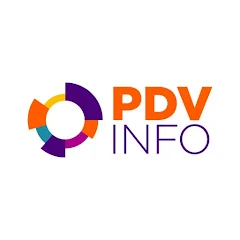With Ružica Omazić, Director of the accounting service FINACO-BC d.o.o., we talked about her career in accounting, how the role of the modern accountant is evolving, and why digitalization is crucial for the success of accounting services today. We also touched on the topic of PANTHEON, the future of the industry, and — sailing.
What initially drew you to accounting? Did you always want to work in this profession, or was it the result of another career path?
Although my secondary and university education essentially prepared me for the job of an accountant, after a long professional journey over the past fifteen years, my career ultimately settled in the field of finance and accounting — an area in which I now feel the greatest professional confidence and passion.
You are the director of a successful accounting service, FINACO-BC. How would you describe the role of the modern accountant today?
A modern accountant is not just someone who records business transactions in a company. With all their competencies — not only as an accountant but also as a tax advisor, and often as a labor-law and business-law consultant — they must also participate in shaping business changes, preparing and planning significant business events. This way, it is possible to consider all aspects of the decisions made by a company’s management, whether it concerns a small and simple or a large and complex business activity.
In recent years, there has been much discussion about digital transformation in accounting. As a director, how do you view this development, and what changes do you notice in everyday work?
Digital transformation represents the future of the accounting profession, with the potential to completely eliminate manual work in the near future. Accountants, freed from administrative tasks and countless repetitive data entry and formal control activities, become indispensable members of expert teams, participating in all stages of the business process — as tax and business advisors.
Digital transformation in accounting is no longer just a trend — it shapes the way we work and communicate every day. In our firm, this specifically means: less paper, fewer manual entries, and more automated processes — from receiving documents to posting. Information is available in real time, allowing us to respond faster to client needs.
We particularly value the possibility of working in the cloud and sharing a common database with clients — this creates the foundation for better cooperation and an advisory approach, which today makes the key difference between traditional and modern accounting.
In your company, you use the business software PANTHEON Accounting. How does this program specifically help your team work faster, more transparently, and with fewer errors? Do you have a favorite functionality?
From the start, PANTHEON proved to be a “friendly” program in terms of innovation and adaptability to the specific needs of our clients. Even at the level of an ordinary but somewhat experienced user, new solutions can be relatively easily implemented and applied — which doesn’t mean there are no challenges.
An accounting service has a wide range of clients with different activities and needs, so we go through most of PANTHEON’s functionalities: from standard — cash, HR-payroll, goods — to production, service, and more. However, the complex and constantly changing business environment in which companies in BiH operate can be challenging even for PANTHEON. For example, in the payroll segment, despite the option of automatic payroll calculation for multiple clients, each calculation must still be carefully reviewed (e.g., inter-entity employment, inconsistencies in regulations on minimum wages and minimum contribution bases, differences in refund policies between entities and cantons, affecting tax calculations, etc.).
Automatic postings and controls in the accounting console are of great help. Another useful feature is the calculation of work within the accounting service, which is highly functional for fairly evaluating our work for different clients.
Which functionalities in PANTHEON do you consider key for the transition to the “accounting of the future”? Can you give a practical example?
PANTHEON already has strong foundations for modern accounting, including:
- Automated postings via OCR technology and ePostings — significantly speeding up invoice processing and reducing manual entry.
- eDocumentation and DMS — enabling digital archiving, classification, and authorization of documents, eliminating the need for physical files and printing.
- Cloud-based work — allowing users to access the database in real time, enabling mutual control, avoiding duplicate processing of the same documents, and assigning tasks to clients in the areas they know best (e.g., inventory/material management, work records, etc.).
- Business analytics — dashboards and KPIs provide a visual representation of business performance to management, aiding decision-making.
How do solutions like PANTHEON Accounting change the relationship between the accountant and the client? Is communication more direct? Do you have more time for consulting?
As already mentioned — by automating routine tasks, reducing manual entries, and even transferring core operations to the client (e.g., invoice entry/factoring), accountants gain the opportunity to participate more actively in their clients’ business. Their role increasingly extends toward advisory functions, especially in essential accounting controls, tax, and business matters, where they can make timely contributions to decision-making quality and business stability.
Do you find that clients today expect more analytics and insights into their data, rather than just submitted reports? How does PANTHEON Accounting help you with this?
Absolutely. Clients increasingly request concrete insights, not just numbers. PANTHEON enables us to provide them with up-to-date data, basic analyses, and visual dashboards. Although we still use additional tools for deeper analytics, the system certainly helps us be faster, more precise, and available at the right time.
What matters most to you in working with clients? In your opinion, what differentiates a good accounting service from an excellent one, and what role does quality software like PANTHEON play in this?
In working with clients, absolute trust and readiness for cooperation and change are most important. The answer to the second question can be summarized in several key points:
- A good service:
- Posts transactions accurately and on time.
- Prepares legally required reports.
- Responds to inquiries when contacted.
- An excellent service, in addition to the above:
- Anticipates client needs and warns of risks before they become problems.
- Takes on an advisory role, not just technical data processing.
- Has organized internal processes, uses digital tools, and constantly improves.
- Provides clients with real-time business insights.
If you could build the “accounting service of the future” from scratch today, what foundations would you set? Which technologies, skills, and approaches would be key in your opinion?
The accounting service of the future can only be established in the “business environment of the future,” but in theory, here are some key elements:
- Technical: An ERP system with all the previously mentioned modern accounting functionalities.
- Organizational: A clearly defined, sustainable long-term business model with standardized processes that allow scalability while maintaining quality regardless of workload; a modular service structure — from basic processing to full advisory packages, with transparent pricing; monthly efficiency monitoring via internal KPIs (e.g., processing time per client, number of interventions, quality of communication, number of advisory suggestions, etc.).
- Educational: An internal training platform for the entire team, as the future service must invest in knowledge as much as in technology.
- Financial: We cannot discuss the “accounting service of the future” without addressing the financial valuation of the profession. The accountant is no longer just an operational executor who “posts and submits reports” but a highly educated professional. This role demands clear financial recognition. Accounting service fees must reflect the true value of work, knowledge, and risk — not be defined solely by the number of documents or company size. A true shift toward the “service of the future” also involves repositioning the accountant as a tax and business advisor whose contribution is valued as highly as that of a legal advisor, tax consultant, or internal auditor.
We’ve heard you are passionate about sailing — can you draw a parallel between sailing and running an accounting service?
Yes! Running an accounting service, despite all improvements, is still a continuous accumulation of stress. Sailing is a very effective way to relieve that accumulated stress — a kind of annual “reset.” Sailing with Datalab adds another dimension — alongside the complete absence of stress, it provides an effective setting for solving work-related problems, building new contacts, exchanging experiences, and generating new ideas and solutions. Proven!!!




